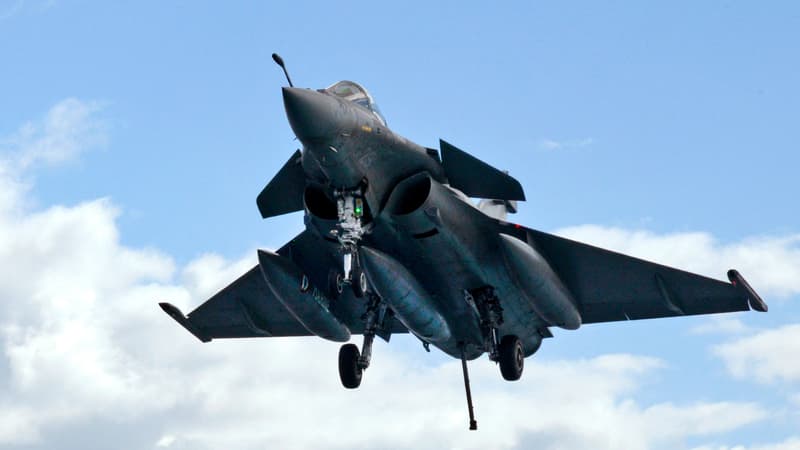Will Serbia soon have Rafale aircraft? This remains the ambition of its president Aleksandar Vucic, who hopes to convince Emmanuel Macron this week during his visit to Belgrade.
“It is a huge contract for our country and it is not a small contract even for France,” the Serbian president said in an exclusive interview with AFP, referring to a transaction that could amount to several billion euros, without specifying the number of aircraft involved.
Discussions have been underway for several months and, officially, the file is not making any progress. Last April, Aleksandar Vucic said that “concrete agreements” had been signed with France. The Serbian president said he hoped to secure a signature during the summer. The operation, which would involve a dozen devices, could raise three billion euros.
An aging fleet
Will a contract be concluded? The French president will travel to Belgrade on Thursday for a two-day visit during which the two leaders are expected to sign several bilateral agreements. Serbia is in urgent need of replacing its ageing Russian fleet, as Aleksandar Vucic admits.
These dozen Rafales are intended to replace the 14 MiG-29s of the Serbian Air Force. Belgrade has already tried to acquire Mirage 2000s from the Greek army, according to the Enikos website.
In recent years, Serbia has significantly increased its arms purchases from European countries, but also from China and Russia. Belgrade spends 2% of its GDP on military spending. From 2012 to 2023, Serbia’s military budget has tripled. Between 2014 and 2023, the country spent 2.67 billion euros to purchase the Chinese FK-3 anti-aircraft system, the Russian Mi-17 and Mi-35 helicopters, as well as the Russian Pantsir air defence system.
Russia is no longer a dream
Will France agree to supply Rafales to this ally of Moscow? For Jasmin Mujanovic, a political scientist, it would be “worrying to sell an extremely sophisticated weapon to one of Russia’s closest allies. Is there a risk of technological leakage to Russia at stake?”
On the other hand, this contract would allow Serbia to distance itself from Moscow, either politically or militarily. “Russia is no longer a dream and blocking the war in Ukraine is not in Putin’s interest. These allies of yesterday may want to let him go in order to forge other ties with Europe and, why not, with NATO,” adds General Pellistrandi.
Source: BFM TV


